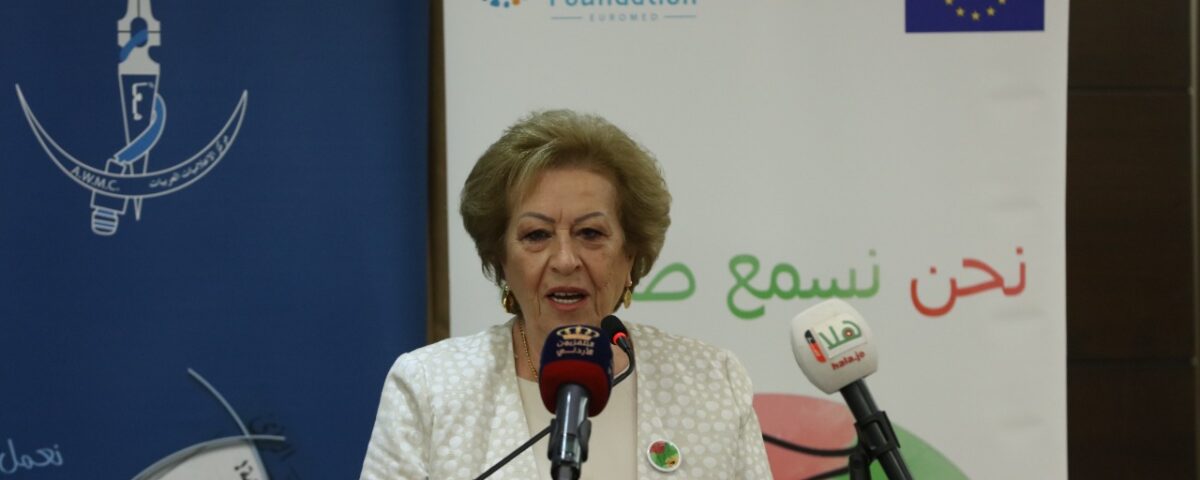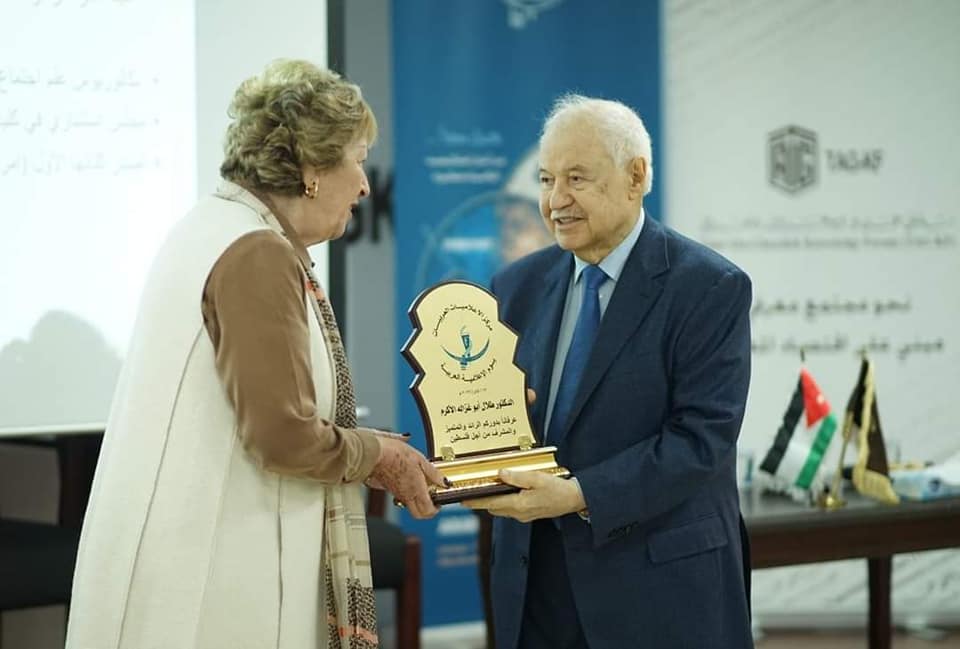AWMC lunched the 16th international conference ” We Hear Your Voice”
We hear your voice in partnership with Yes Theater Arciragazzi Portici Benilde and with the support of Anna Lindh Foundation All thanks and appreciation to all institutions and associations for hosting the participating delegation from Jordan, Palestine and Italy Legal Network for Arab Women Legal Network for Arab Women Department of Family and Juvenile Protection Department of Family and Juvenile Protection Jordanian Women’s Union Jordanian Women Solidarity Association – sigi-jordan Justice Center for Legal Aid (JCLA)
July 11, 2021
Launching the project for the change in gender policies, phase two
July 12, 2021Under the theme “We hear your voice”, the 17th Arab Women Media Conference (AWMC) was held on Wednesday to discuss the challenges facing women and ways to reach a less discriminatory and more optimistic society.
Organised by the AWMC, and held under the patronage of HRH Princess Basma, the honorary chairperson of the AWMC, the event featured discussions with participants from Jordan and several Arab and European countries on the forms of violence against women and how the media can influence change.
Jordanian National Commission for Women Secretary General Salma Nims delivered a speech involving media’s use as an accountability tool that pushes “all of us to improve our performance and have multi-level solutions”.
“The important role of journalists is not only to bring gender-based violence [GBV] stories to the attention of society, but also to policy-makers and the government,” Nims told the gathering.
Nims stressed that ending GBV is still one of the top priorities of the local community in the consultations for the preparation of the National Strategy for women 2020-2025.
AWMC President Mahasin Imam said the conference constituted the conclusion of the “We Hear Your Voice” project, which represented an important form of documenting manifestations of cases of violence.
“The project documented the challenges faced by women in the struggle for their rights,” Imam told the gathering.
The conference, Imam said, followed the centre’s framework concerned with rights, empowerment, participatory work and a cooperative vision.
Imam stressed the aim of the programme is to “demonstrate issues, ideas, methodologies, proposals and practical means that will contribute to protection from violence”, and to “focus on the role of the media in confronting violence against women in politics”.
AWMC Programmes Director Sana Imam presented some of the recommendations that came out of the studies to help gender-based violence survivors.
According to Imam, one of the most important recommendations was to focus on media training on domestic violence issues.
Other recommendations focused on using interactive theatre and drama to deal with gender-based violence cases, as well as introducing the concept of media literacy in schools.
The “We Hear Your Voice” project is supported by the Anna Lindh Euro-Mediterranean Foundation and co-funded by the European Union. The project is carried out by the AWMC, Arciragazzi Portici (Italy), Loesje (Palestine) and BENILDE Culturas y Mujeres (Spain).
The project’s objective is to study the phenomenon of gender-based violence and compare its occurrence among the youth of Italy, Spain, Jordan and Palestine.
Project Coordinator Arciragazzi Portici Paola Schettini presented the results of a study conducted in the four countries.
“We distributed a questionnaire for people between the ages of 18 and 35 between January and February 2021 using online forms and social media outlets,” Schettini said.
One of the study’s main findings was that physical violence was the most visible and recognised form of gender-based violence in the four countries. However, more than half the total respondents did not “recognise themselves as a victim of physical, sexual, or economic violence”, Schettini noted.
More than half of the interviewees did acknowledge that they were victims of some form of psychological and emotional violence, Schettini added.
Established in 1999 under Princess Basma’s directives, the AMWC is a non-governmental organisation specialised in empowering Arab women journalists through training, research and media consultations.





